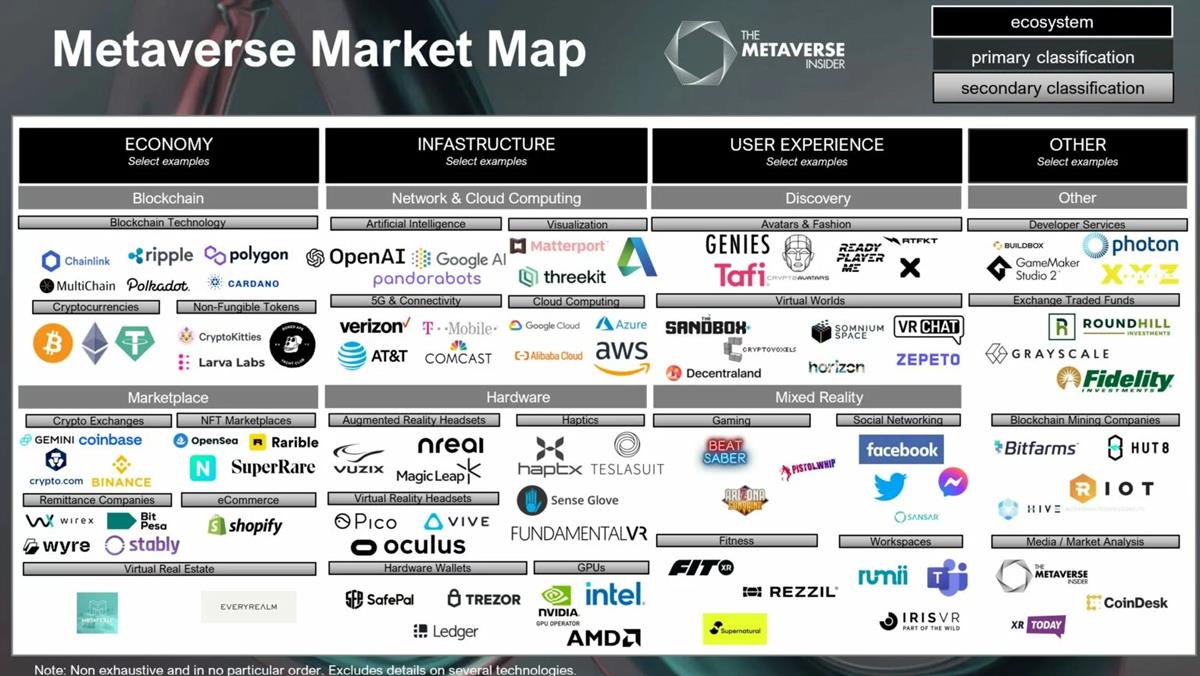
READ MORE: How we describe the metaverse makes a difference – today’s words could shape tomorrow’s reality and who benefits from it (The Conversation)
There are now myriad articles on the metaverse, but still the concept remains a vague. That matters because the way we conceive of the next-gen internet will form the foundations for its actual structure and right now the narrative is being controlled by a few.
At face value, Tom Boellstorff is an unlikely commentator on the subject. He’s a professor of Anthropology at the University of California and therefore understands the dynamics of social interaction and how that changes from culture to culture.
If, in future, we’re all going to be socializing a lot more online in virtual worlds, then Boellstorff thinks confusion now about what the metaverse is won’t help us in the long run.
NAVIGATING THE METAVERSE:
The metaverse may be a wild frontier, but here at NAB Amplify we’ve got you covered! Hand-selected from our archives, here are some of the essential insights you’ll need to expand your knowledge base and confidently explore the new horizons ahead:
- What Is the Metaverse and Why Should You Care?
- Avatar to Web3: An A-Z Compendium of the Metaverse
- The Metaverse is Coming To Get You. Is That a Bad Thing?
- Don’t Expect the Metaverse to Happen Overnight
- A Framework for the Metaverse from Hardware to Hollywood and Everything in Between
“The metaverse is at a virtual crossroads,” he argues in an article for The Conversation. “Norms and standards set in the next few years are likely to structure the metaverse for decades. But without common conceptual ground, people cannot even debate these norms and standards.”
He goes on, “If we can’t distinguish innovation from hype, then powerful companies like Meta are free to set the terms for their own commercial interests.”
Most attempts to describe the metaverse use a similar set of phrases including virtual worlds, avatars, virtual reality, cryptocurrency, blockchain, and non-fungible tokens. The problem as the professor sees it is that humans don’t categorize by such lists.
The Metaverse: Risks and Opportunities
By Abby Spessard
Still in its conceptual form, the metaverse isn’t here yet but it’s already becoming many things to many different people (and brands). Not so fast, argues computer science and psychology student Anke Hao, who points out that, as future users of the metaverse, we don’t necessarily have to accept whatever definition of it we’re handed.
“If we can understand what the possibilities of the metaverse are, we can begin shaping our own definitions of it, and by extension, build a version with standards that protect our rights and open up new opportunities,” she writes on Medium.
Hao breaks down the opportunities the metaverse represents, along with many of the risks.
First up is education and training. Not only is virtual reality already used to aid certain surgical procedures, but it’s also used in various skill simulations. It’s “cheaper, more objective, and more accessible than traditional methods,” she explains. VR provides the opportunity for more practice and training in a range of fields, in any place, at any time, and however many times it’s needed.
Digital doubles and simulations present the next-biggest opportunity. “Digital twins are already saving us from expensive mistakes in manufacturing, administration and policy,” Hao explains. For example, “a digital twin of the Hong Kong International Airport was created to simulate the flow of passengers and how it changes with maintenance, runway backups, and other issues.”
The third opportunity Hao examines is digital experiences. Brands are taking advantage of the new marketing medium. “Digital experiences is where most of the consumer awareness centers around,” she says. As a new medium, the metaverse provides the opportunity to not only interest people, brands, and companies, but to craft “experiences that can eventually surpass what is physically possible in the real world.”
Data privacy is one of the biggest risks Hao identifies, especially considering the widespread security issues inherent in our current Web2. In the metaverse, a “headset might have eye tracking and emotion recognition” — it could even track your health or what grabs your attention, giving companies even more data points to use.
Identity theft powered by deepfakes and synthetic voice technology is also a major hazard, leading to mistrust of public figures and institutions. “These same tools can be used to take away the identity of people in other contexts,” she says. “Without awareness of how to detect and counter these false identities, people will be hard-pressed to know what is real and what is fake.”
Asset ownership could additionally be risky for consumers, Hao maintains, because eventually we may all own digital assets. “If so, we should understand the degree of our ownership before investing our real-world assets into digital ones.” There have already been instances where digital ownership has been thrown into question — spoiler alert: it’s the companies running the platforms.
The solution to dealing with the risks the metaverse presents is to become “architects and educated citizens.” Hao underscores that we only get a say in the development of the metaverse if we clearly understand its possibilities, limitations, and threats. In her eyes, either we become the architects in charge, or the educated citizens controlling our own information, identity, and assets.
While we may not know what form the metaverse will ultimately take, regulation and safety are still a good place to start. The metaverse is primarily made for us, Hao underlines, “so if we’re not at least keeping an eye on how the metaverse will impact our rights and opportunities, we should be the ones joining in on creating and influencing it ourselves.”
READ MORE: Why It’s Important to Learn About the Metaverse (Anke Hao)
Decades of research in cognitive science have shown that most categories are radial and will differ in people’s conception depending on their cultural experience. Using Boellstorff’s example, a “bird” for North Americans looks something like a sparrow. Hummingbirds and ducks are further from this prototype. Further still are flamingos and penguins. Yet all are birds, radiating out from the socially specific prototype.
Taking this idea to the metaverse, he picks on the idea of interoperability — the idea that identities, friendship networks, and digital items like avatar clothes should be capable of moving between virtual worlds.
Clegg warned that “without a significant degree of interoperability baked into each floor, the metaverse will become fragmented.”
“The metaverse is at a virtual crossroads. Norms and standards set in the next few years are likely to structure the metaverse for decades. But without common conceptual ground, people cannot even debate these norms and standards.”
— Tom Boellstorff
Other companies like Epic Games and NVIDIA have espoused similar arguments, but Boellstorff says that this ignores how interoperability isn’t “prototypical” for the metaverse. In many cases, he suggests, fragmentation is desirable.
“I might not want the same identity in two different virtual worlds, or on Facebook and an online game. This raises the question of why Meta — and many pundits — are fixated on interoperability. Left unsaid in Clegg’s essay is the “foundation” of Meta’s profit model: tracking users across the metaverse to target advertising and potentially sell digital goods with maximum effectiveness.”
Clegg’s claim about interoperability isn’t a statement of fact, according to the professor. “It’s an attempt to render Meta’s surveillance capitalism prototypical, the foundation of the metaverse. It doesn’t have to be.”
READ MORE: Making the metaverse: What it is, how it will be built, and why it matters (Nick Clegg)
For Boellstorff, this example illustrates how defining the metaverse isn’t an empty intellectual exercise. It’s the conceptual work that will fundamentally shape design, policy, profit, community, and the digital future.
He says we need to beware attempts by companies like Meta to lock in definitions of the metaverse, otherwise this will become our digital reality before it’s too late.


